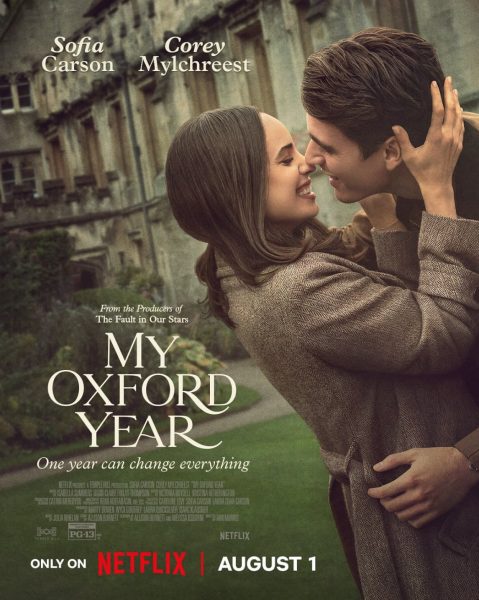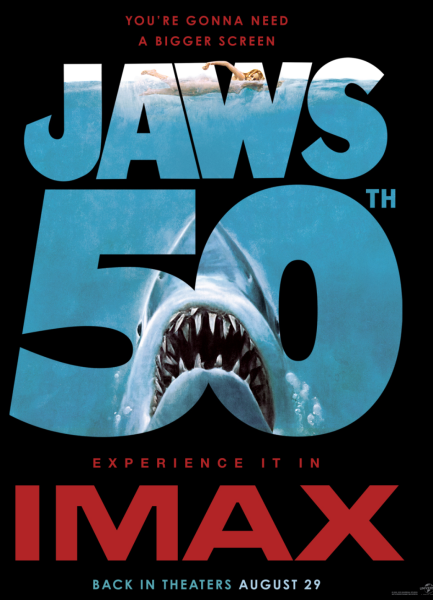The Whale: “Fatphobic” or Empathetic?
In a sea of a dozen faces in a teleconference English class, there is one screen in the middle with their camera turned off. The anonymous instructor behind the black screen presents to his students with encouragement and inspiration, but is met in return with blank stares and lackluster amusement. Once the session ends, the angle widens to reveal our story’s protagonist, Charlie (Brendan Fraser), whose body consumes the entire frame, immediately answering his students’ questions of identity.
“The Whale” is Darren Aronofsky’s eighth feature film, and fits with the “Black Swan” (2010) director’s signature style of surreal, disgusting and severe. The film follows a 600-pound man who is in debt, has no insurance and a blood pressure of 238/134 mm Hg. Refusing the advice of his only friend and nurse, Liz (Hong Chau), Charlie believes his final days’ are better spent in efforts to reconcile with his estranged teenage daughter, Ellie (Sadie Sink), than with a doctor. But, Ellie wants nothing to do with her father and instead spends time with him for her benefit only, as he offers her all of his money ($120,000) and help with her English homework.
Charlie’s circumstances are painstakingly bleak and depressing, highlighted by Aronofsky’s choices of color grading with washed-out hues of green, blue and gray. The 4:3 aspect ratio allows the mood of the film to feel intimate and sincere, forcing the audience to struggle with Charlie. Static shots reflect the protagonist’s stationary lifestyle, and contrast with moments of high emotional conflict and argument with other characters, where Aronofsky implements arc shots that swirl around the stationary protagonist opposite the clashing diametrical characters. In a scene where Charlie’s ex-wife, Mary (Samantha Morton), confronts him for contacting Ellie behind his back, the two women spin and bicker around him like planets orbiting the sun.
“The Whale” makes consistent references to Herman Melville’s “Moby Dick,” a feature well represented in the film’s score, composed by Rob Simosen. Percussive noises emulate the sounds of creaking wooden boards, as waves of string harmonies monotonously crash against the high siren songs of a solo violin’s melody. The chord progression quivers back and forth, moving in a pendulum motion that in time seems to go nowhere, and some songs regretfully feature low brass melodies reminiscent of that one episode of “Family Guy” where Stewie “got a job following fat people around with a tuba.”
Aronofsky’s movies are no stranger to controversy, and “The Whale” is no exception. Since the film’s initial release, many have come to criticize its portrayal of obesity, and Aronofsky’s choice to not cast an obese person, opting instead to put Brendan Fraser in a “fat suit.” He defended this choice by stating that his decision in casting was motivated by finding the right actor for the emotion of the role rather than the stature. Samuel D. Hunter, the writer of the original 2012 play and the adapted screenplay for A24, was also disappointed by the reviews, arguing that people tend to judge films based on a one sentence synopsis. He, in fact, drew inspiration from his personal life in creating the story, as he has struggled with excessive overeating.
Coming from a director known for his body horror and crude imagery, I understand why concerns arise when Aronofsky makes a film about obesity. Upon first inspection of the film and its premise, I, like many others, initially expected something a bit “fatphobic.” I first saw the film opening night at the Lincoln Square AMC Theater, and attended a Q&A with Aronofsky and Sink afterwards. The final question, which was more of a compliment, came from a young woman who was sitting in the second row to the front of the theater. With a smile on her face and tears streaming down her cheeks, she thanked the director for giving a voice to those who are unable and often too ashamed to tell their stories themselves. She told him she has worked in end-of-life care for elderly and obese patients, and found “The Whale” heartbreakingly accurate, appreciating the sympathetic perspective of Charlie.
Stories are designed to make you feel, and sometimes that feeling is uncomfortable. Whilst moments of “The Whale” are crude, strifeless and disturbing, there are many more moments that are empathetic, raw and redeeming. It is a story of a man on his path to redemption, or perhaps salvation, and it appears confrontation of the less desirable is absolutely necessary in order for him to do so.













































































































































































































